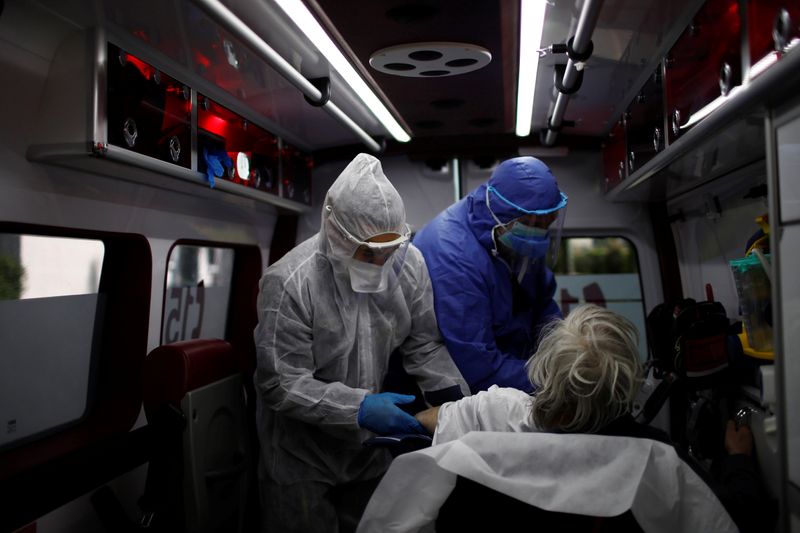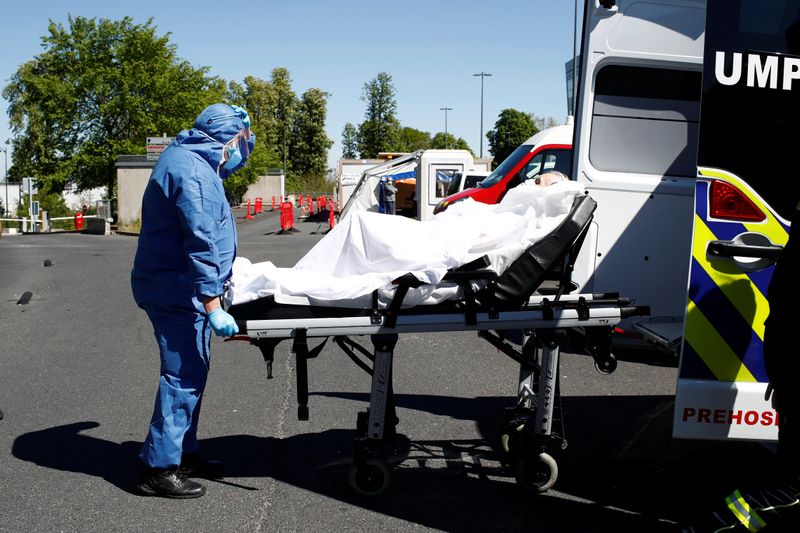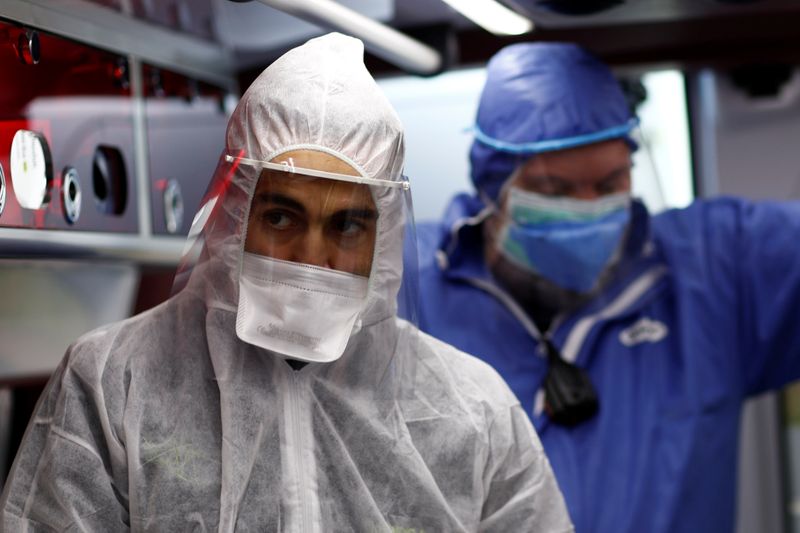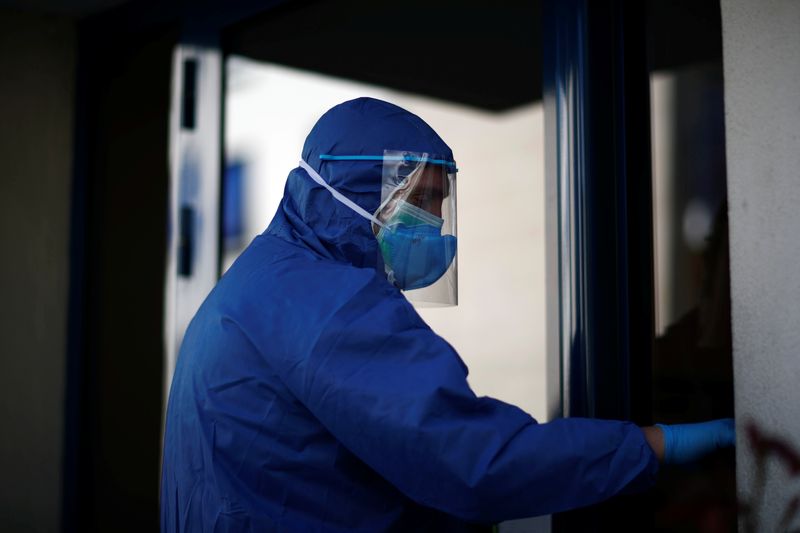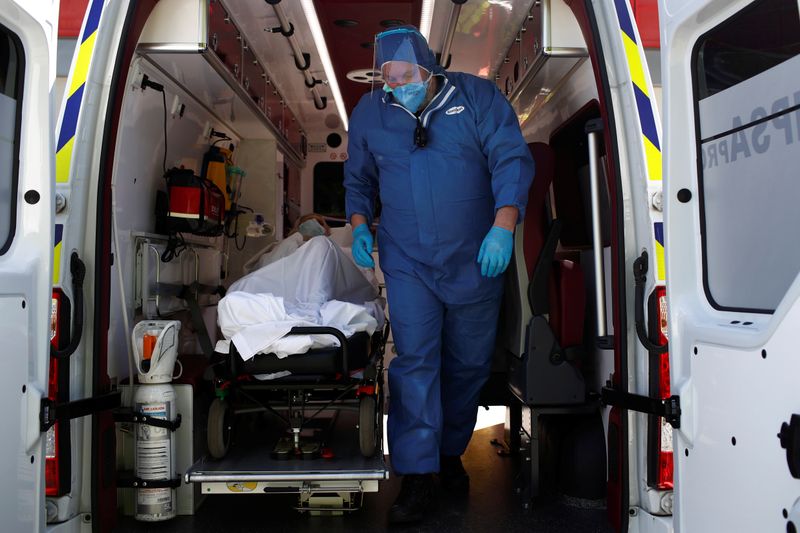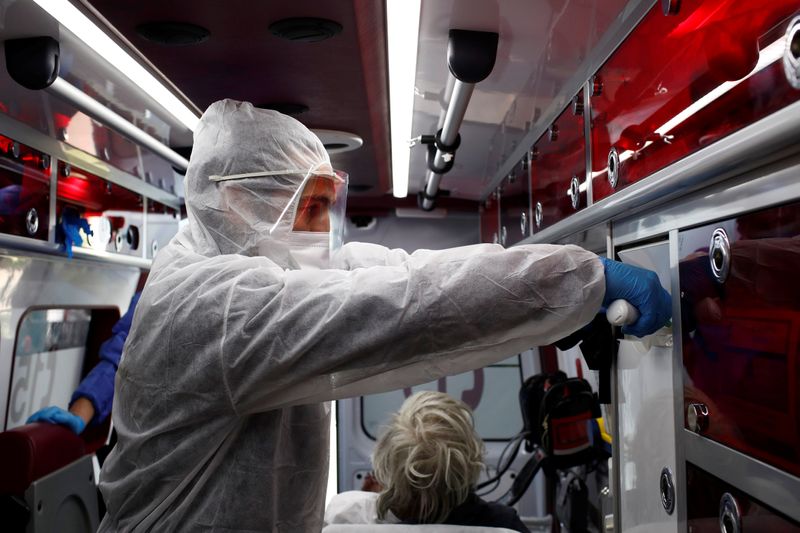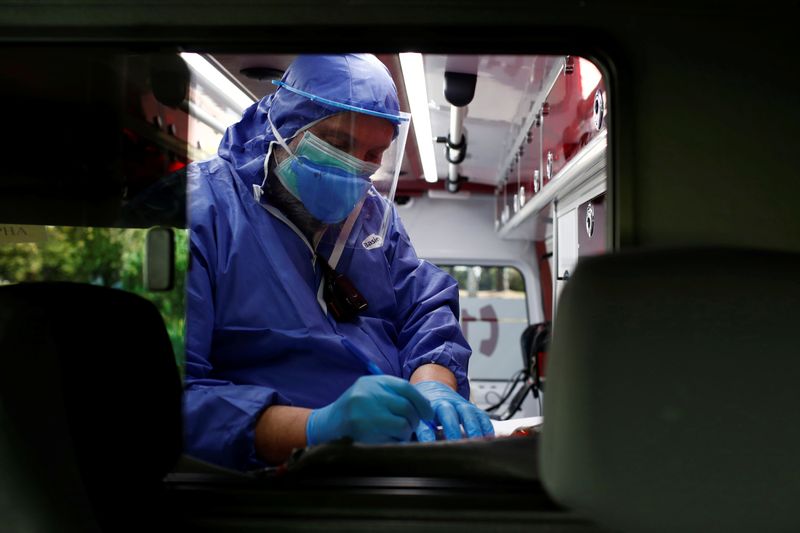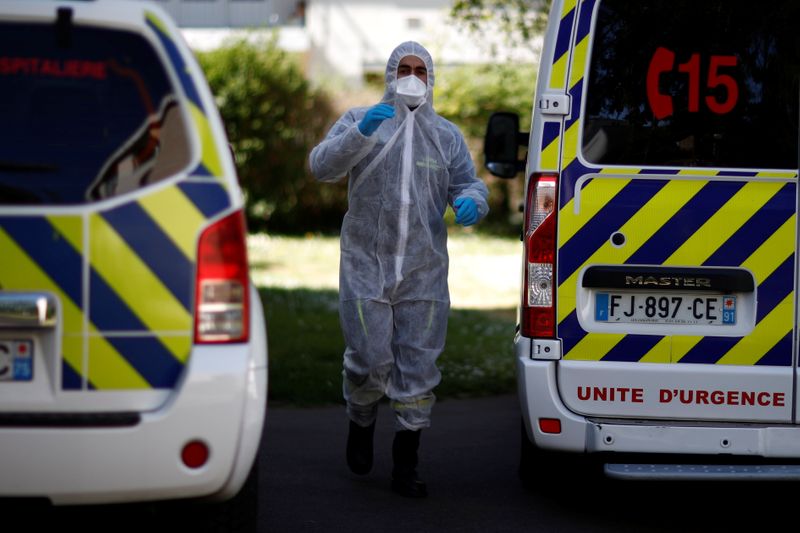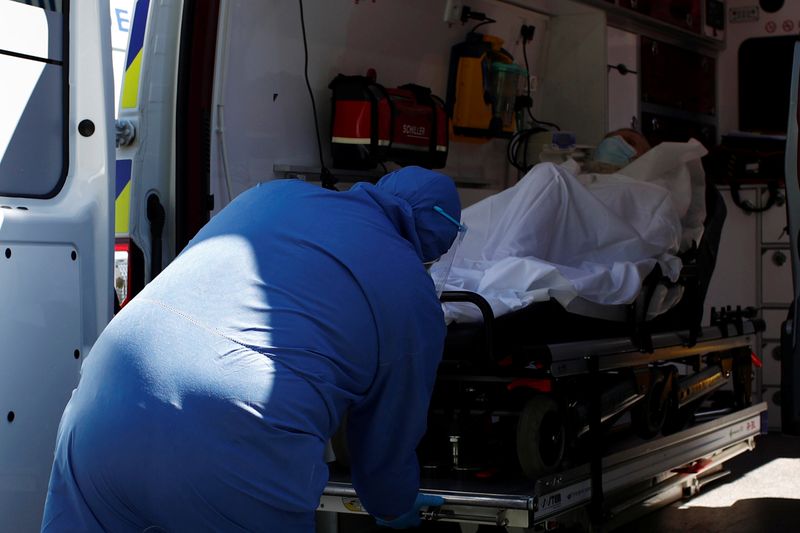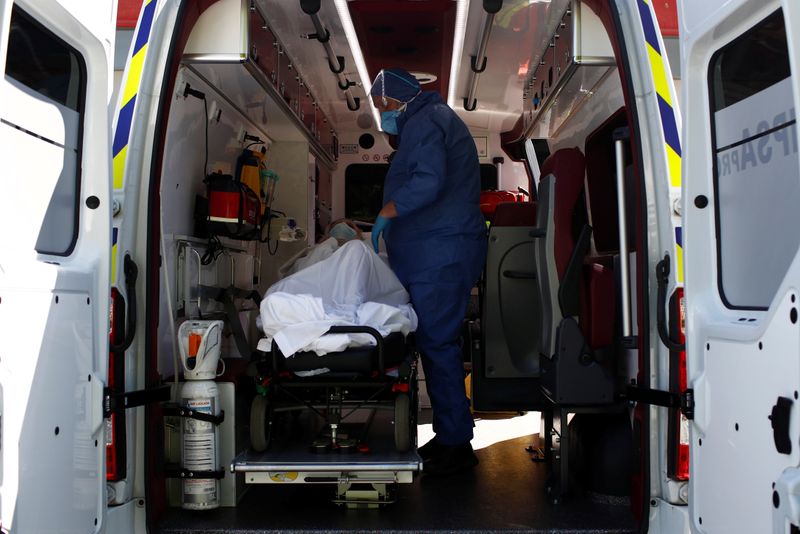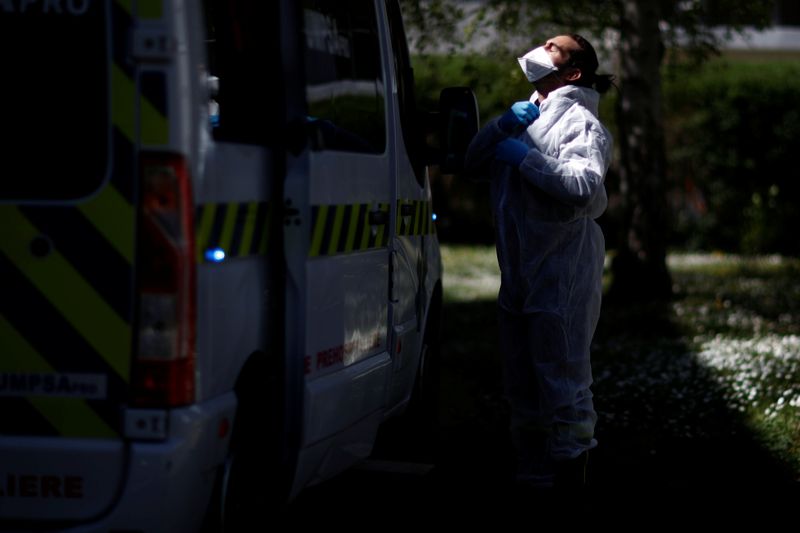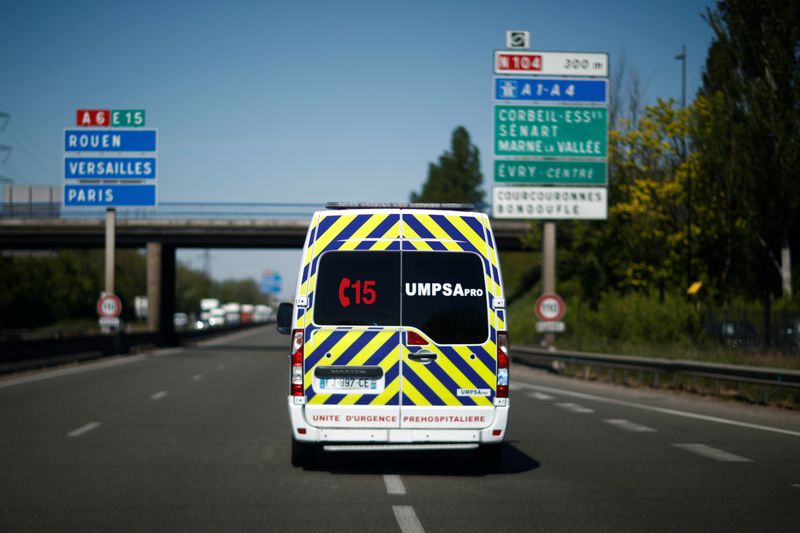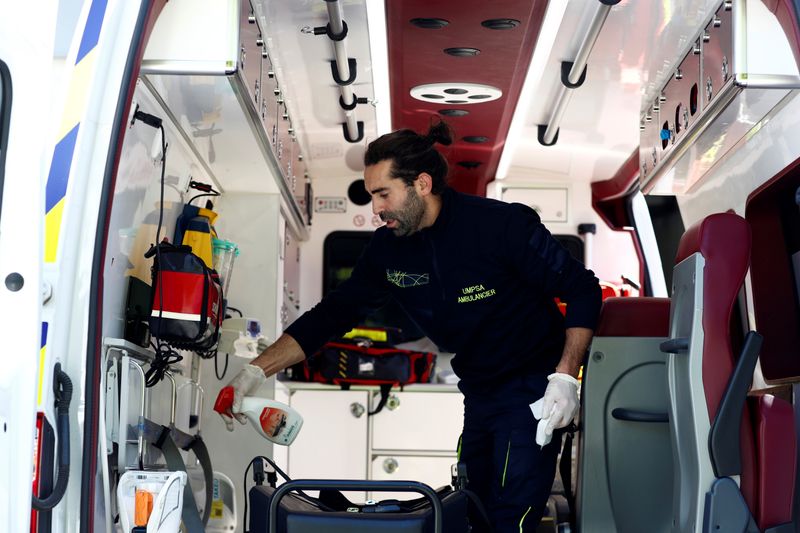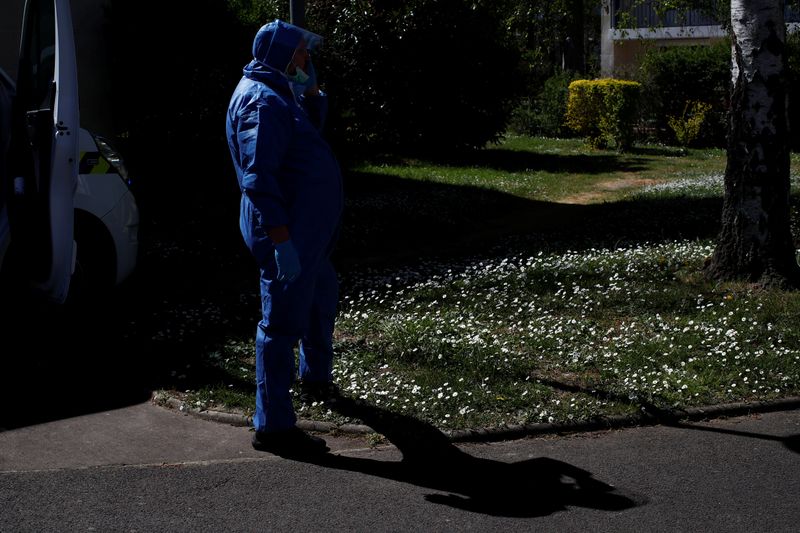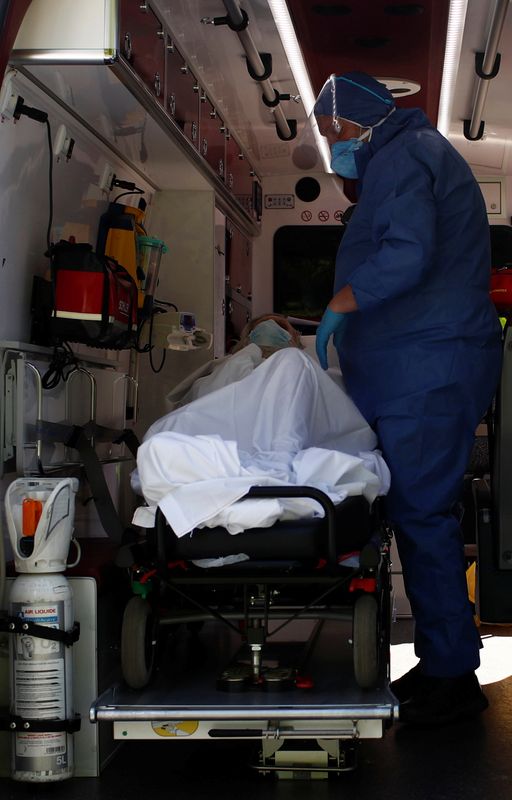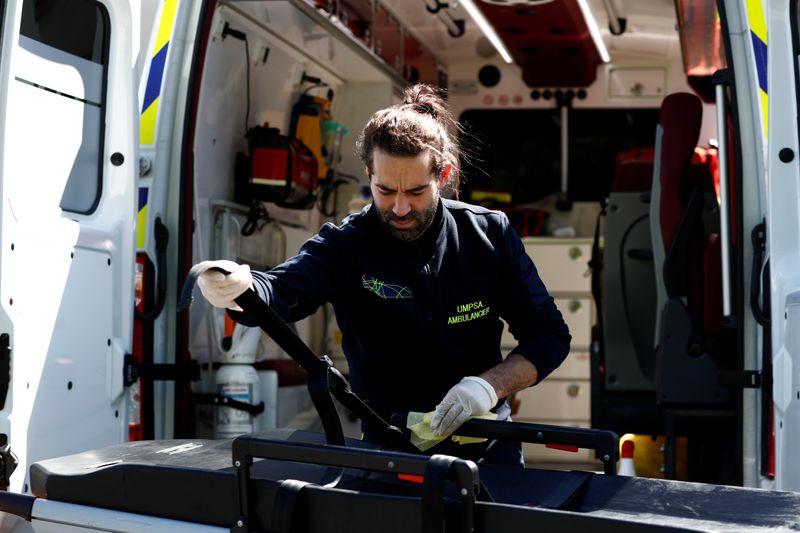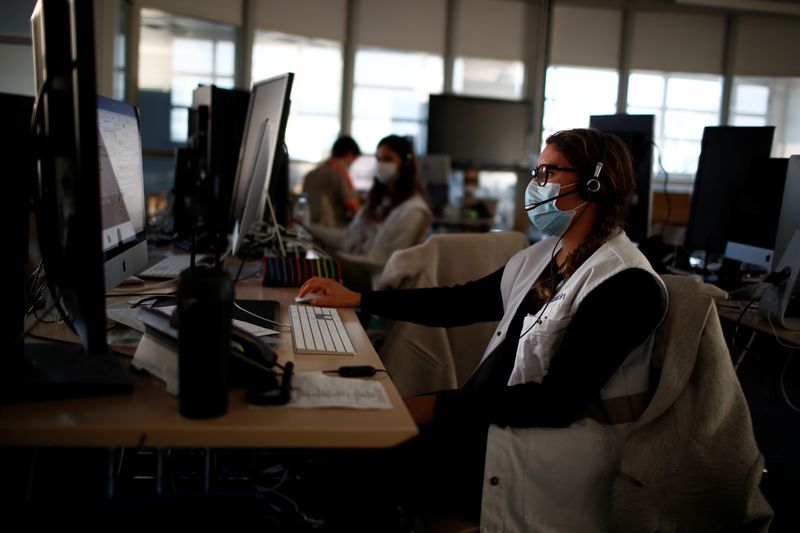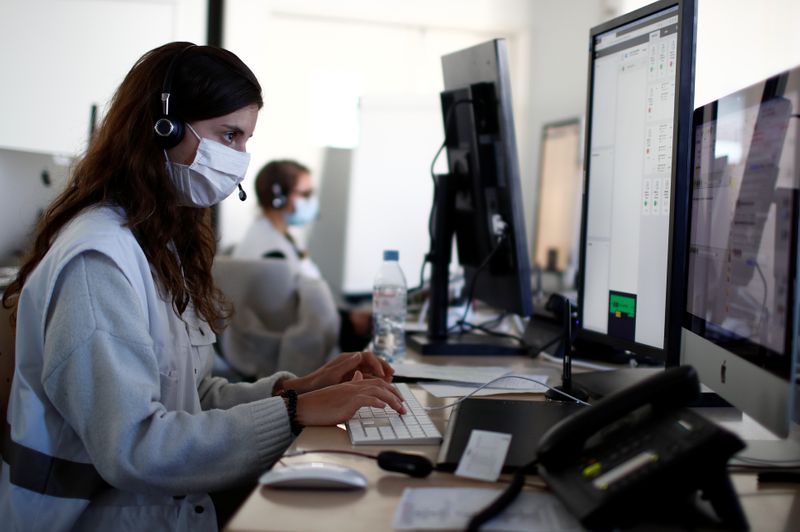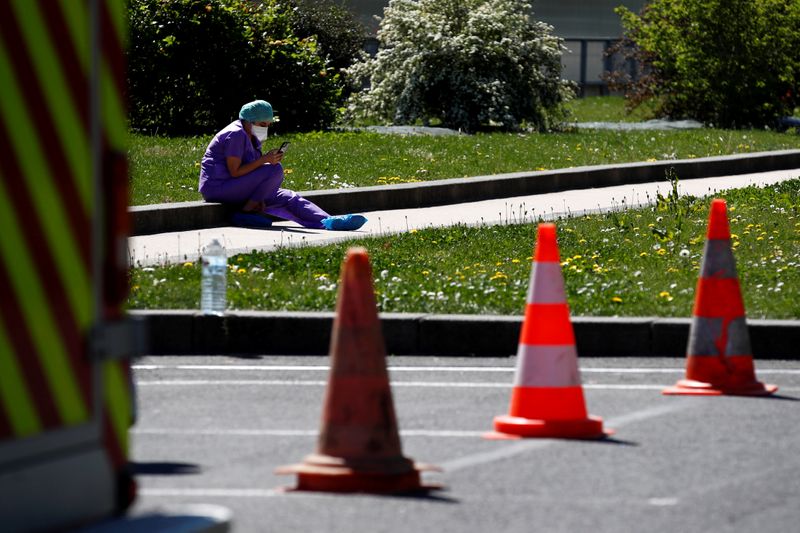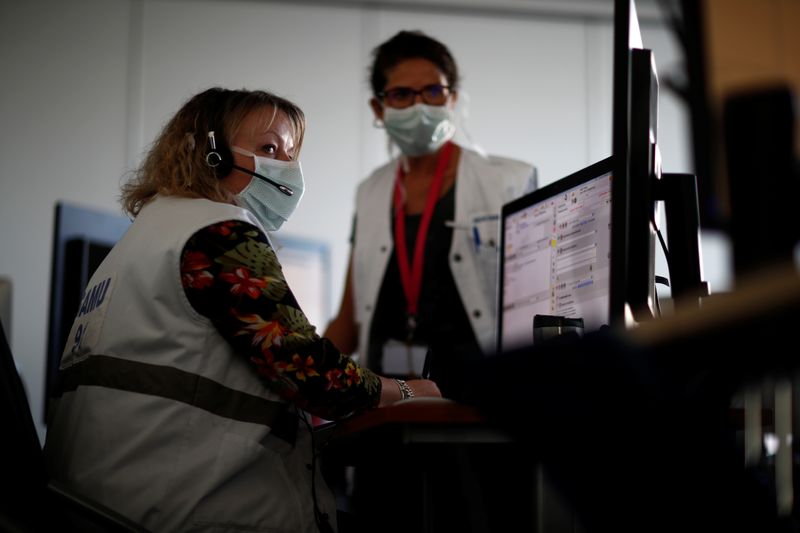CORBEIL-ESSONNES, France (Reuters) – For French ambulance crew boss Fabrice Lancelot, the coronavirus crisis has delivered a small consolation: a new respect for health workers, even among notoriously impatient Paris motorists.
“I get the impression that there’s a bit more respect on the roads,” said Lancelot, crew boss with the UMPSA Pro private ambulance firm that has spent the past weeks ferrying patients around the southern suburbs of the French capital. Many have COVID-19, the disease caused by the novel coronavirus.
“Definitely there’s less traffic, so we get in the way less, but … if someone cuts you up, or does not give way to you by mistake, they apologise by raising their hand. That’s something we did not see before,” he said.
The coronavirus death toll in France on Wednesday reached 15,729. With hospitals and clinics fighting to treat thousands of people with virus symptoms, French citizens have shown their support. Every night at 8 p.m. (1800 GMT), many Parisians step out on their balconies to applaud healthcare workers.
That sentiment has provided a much-needed morale boost for the ambulance crews in the suburbs of Paris. “We feel appreciated more,” said Jean-Manuel Robles, a crew member with the UMPSA Pro team.
On Tuesday, Robles and his colleagues were called out to see a 29-year-old woman who had tested positive for COVID-19. She had been told to recuperate at home, but was having respiratory problems, so dialled for help.
Before entering the woman’s apartment building, Robles and his colleague, Najib Alouani, put on full protective gear: coveralls, masks, goggles and gloves.
They put the woman on a wheelchair, loaded her into the ambulance, and transported her to the Sud Francilien hospital for treatment. Afterwards, they stripped off their gear, disinfected, and got ready for the next callout.
Around two weeks ago, Robles and his colleagues were transporting some 10 people with COVID-19 symptoms a day. That number is now down by half, the crew said.
But the weeks of working under pressure have left a mark and working out how to protect yourself from a highly contagious virus is a constant worry.
“It’s something that weighs you down,” Robles said.
But he said ordinary people’s appreciation helped him get through. “We see a bit more solidarity towards the ambulance crews,” said Robles. “It allows us, as professionals to have a little lift in our morale and to keep doing what we’re doing.”
(Writing by Christian Lowe; editing by Barbara Lewis)

